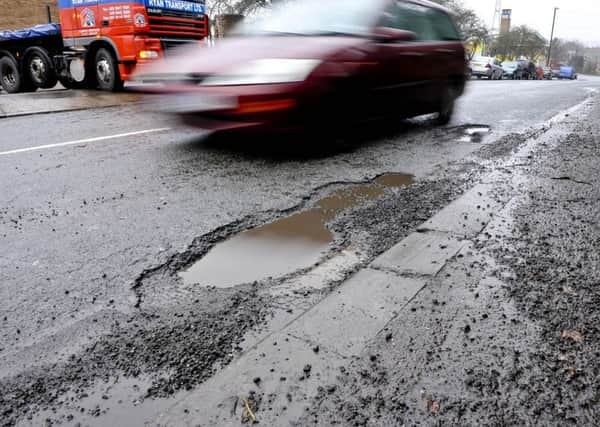Borough roads a hole lot better than most!


Analysis by the Local Government Association (LGA) shows the bill for repairing roads in England and Wales could reach £14bn within two years and the organisation says that this could be a “tipping point” for many local authorities struggling to make ends meet.
This is several times more than councils’ entire annual revenue spending on highways and transport, which was £4.4bn in England during 2016. But Wigan’s roads are these days being trumpeted as among the best in the region, with a large fall in complaints about vehicle damage and road craters due to an increased investment in local repairs.
Advertisement
Hide AdAdvertisement
Hide AdThat said, statistics from the Asphalt Industry Alliance (AIA) show the amount needed to mend roads rose nationally from £9.8bn in 2012 to £11.8bn last year.
To reverse this trend the LGA has called for the Government to inject a further £1bn a year into roads maintenance, which it claimed could be achieved by investing two pence per litre of existing fuel duty without increasing pump prices. LGA transport spokesman Martin Tett said: “This year could be a tipping point year regarding potholes.
“Councils have experienced significant budget reductions and now face the looming prospect of a bill of £14bn to bring the nation’s roads up to scratch.
“It is wrong and unfair that the Government allocates almost 40 times more to maintaining national roads, which it controls, compared with local roads, which are overseen by councils. It is paramount this funding discrepancy is swiftly plugged.”
Advertisement
Hide AdAdvertisement
Hide AdBut last autumn figures for Wigan revealed that in general, the condition of borough roads has been greatly improving.
Wigan Council received almost half the number of complaints about road surface issues in 2014/15 than it did in 2013/14: a fact credited to almost £1m more being spent on repair and upkeep.
At the time Mark Tilley, the authority’s assistant director of infrastructure and regulatory services, said: “We have reviewed the way we respond to fixing highway carriageways defects and have adopted a robust inspection system identifying defects and ensuring repairs are undertaken swiftly, thus reducing claim numbers and resulting in the overall condition of the borough’s roads being one of the best in the region.”